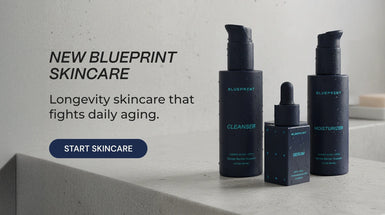
Why I avoid the sun

- Sunlight helps the skin produce vitamin D. This is good for bones and immune health.
- It can increase serotonin, a hormone that promotes mood and calmness.
- Natural light helps regulate our circadian rhythm which improves sleep quality.
- UV rays from the sun break down collagen and elastin. This leads to wrinkles, sagging, and general skin aging.
- Large amounts of UV also increase the risk of skin cancers, such as melanoma, basal cell carcinoma, and squamous cell carcinoma.
- Get sun exposure when the UV index is below 3; early mornings and late afternoons.
- Don’t get burned.
- When the UV index is >4, wear a hat or use a UV umbrella.
- Use a UV light in the morning to promote your circadian rhythm without the sun. I use a 10k Lux Carex lamp.
- You can supplement your Vitamin D levels. I take 2,000 IU daily.
- Use sunscreen that protects against UVA and UVB. I use EltaMD.
- Use a mineral sunscreen if possible.
- A burn is potentially more dangerous than a chemical sunscreen. Try to avoid both.
- If you dislike sunscreen, refer to 1, 2, and 3.
Disclaimer: this blog is provided for educational and informational purposes only and does not constitute providing medical advice or professional services. The information provided should not be used for diagnosing or treating a health problem or disease, and those seeking personal medical advice should consult with a licensed physician.
Shop Related Products
Shop All BlueprintYour Cart (0)
Empty!
Continue Shoppingback in stock
Coming Soon
Join the waitlist to get notified once we launch.
By signing up, you agree to our privacy policy
We will let you know when this item is back in stock!
Something went wrong... Please try again!
preorder modal
Pre-Order Item Added To Bag
shipping restriction
Shipping restrictions apply to this product
Due to geographic restrictions and differing state-level regulations, we do not offer labs services in New Jersey, New York, Rhode Island, or Hawaii yet. If you want to be notified when we launch in these states, please sign-up here.
At this moment, we do not service any labs internationally due to operational and regulatory reasons. If you want to be notified when we launch in your country, please sign-up here and add your country.




![My New Skincare Protocol [2025]](http://blueprint.bryanjohnson.com/cdn/shop/articles/Updated-Skincare-Routine_173e73cb-74bb-4a3b-8edd-dc4c22addd64.webp?v=1761237470&width=2048)





![My New Skincare Protocol [2025]](http://blueprint.bryanjohnson.com/cdn/shop/articles/Updated-Skincare-Routine_173e73cb-74bb-4a3b-8edd-dc4c22addd64.webp?v=1761237470&width=1)









